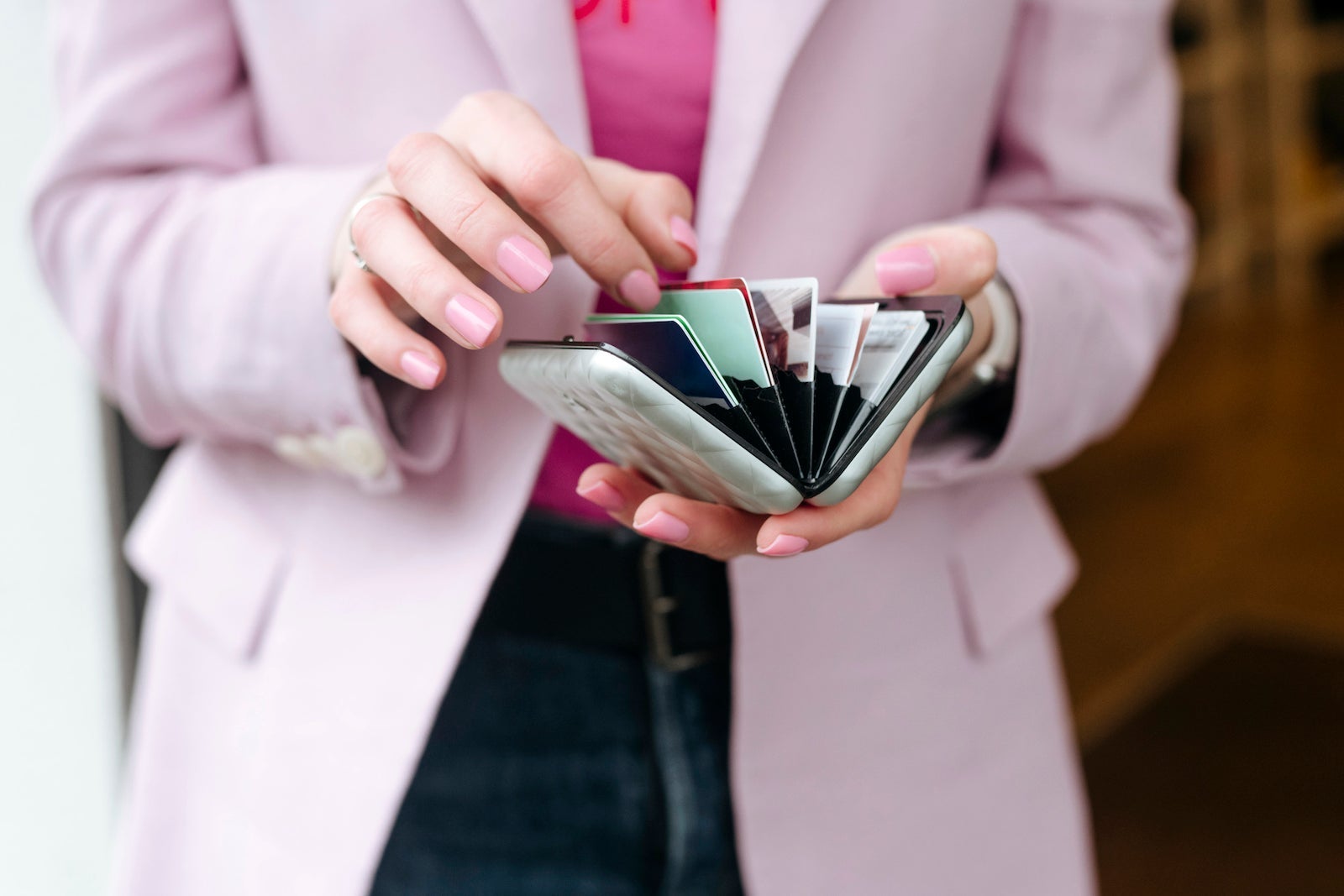Should you use a credit card for large purchases?
When does it make sense to use your credit card for a big upcoming purchase — and when is it not wise?
Financing a big purchase with a credit card can be smart, given there are no additional fees if you pay off the purchase in time. However, there are some other factors to consider. Keep reading to find out when to use your credit card on a major purchase and when to steer clear.
When to use credit cards for large purchases
There are a few common scenarios where using a credit card for a large purchase can be a smart move.
First, if you're trying to earn a large welcome offer on a new credit card, a big purchase can make it easier to reach the spending requirement within the introductory period (most welcome offers fall within a three- to six-month span). Depending on the welcome offer in question, it can singlehandedly make getting the card worth your while.
With a 0% annual percentage rate credit card, you can repay a large purchase over time without worrying about interest piling up. This is helpful if you're trying to finance something you couldn't otherwise afford. That said, always pay off your balance as soon as possible to remain in good standing with your issuer.

You might make a large purchase with your credit card because of the attached earnings rates or benefits. For example, if you put a $10,000 purchase on a card that earns 2% cash back on everything, that's an easy $200 in your pocket.
Last but not least, you might be looking for purchase protection on a large purchase you just made, and your credit card has that added benefit.
There are plenty of times when using a credit card for a large purchase makes sense — just be sure to pay off the balance and avoid interest whenever possible. Otherwise, your card isn't earning you money; it's losing it.
What is considered a large purchase on a credit card?
There's no set threshold for a large purchase. It depends more on your credit limit and how much you can afford to spend and pay off in a given time span.

If you have one credit card with a $2,000 limit, you might consider anything over $1,000 a major purchase. However, if you have a handful of premium cards with high credit limits (and a healthy balance in your bank account), you might be able to afford to spend more and still pay off your card.
The key, as always, is to know your spending limits and avoid buying anything you can't afford to pay off in full — the first of TPG's 10 commandments for credit card rewards.
Notifying your credit card issuer of a large purchase
If you're planning a large purchase ahead of time, it doesn't hurt to notify your credit card issuer — through any of the usual channels — of your upcoming spending. Not only is it a common courtesy, but the purchase might trigger a fraud alert if the transaction amount is far outside your normal spending patterns.

While modern fraud detection algorithms are highly sophisticated and effective, even a temporary block could be inconvenient. Notifying your issuer in advance doesn't hurt in this regard.
Bottom line
As you can see, there are many scenarios in which using your credit card for a large purchase can boost your bottom line.
Even so, always pay off your credit card in full. Try not to use it as a crutch, or you'll likely end up paying interest. If you can avoid that, you can maximize your card's earnings rates and take advantage of a welcome offer or two.
TPG featured card
at Capital One's secure site
Terms & restrictions apply. See rates & fees.
| 5X miles | Earn 5X miles on hotels, vacation rentals and rental cars booked through Capital One Travel |
| 2X miles | Earn unlimited 2X miles on every purchase, every day |
Pros
- Stellar welcome offer of 75,000 miles after spending $4,000 on purchases in the first three months from account opening. Plus, a $250 Capital One Travel credit to use in your first cardholder year upon account opening.
- You'll earn 2 miles per dollar on every purchase, which means you won't have to worry about memorizing bonus categories
- Rewards are versatile and can be redeemed for a statement credit or transferred to Capital One’s transfer partners
Cons
- Highest bonus-earning categories only on travel booked via Capital One Travel
- LIMITED-TIME OFFER: Enjoy $250 to use on Capital One Travel in your first cardholder year, plus earn 75,000 bonus miles once you spend $4,000 on purchases within the first 3 months from account opening - that’s equal to $1,000 in travel
- Earn unlimited 2X miles on every purchase, every day
- Earn 5X miles on hotels, vacation rentals and rental cars booked through Capital One Travel
- Miles won't expire for the life of the account and there's no limit to how many you can earn
- Receive up to a $120 credit for Global Entry or TSA PreCheck®
- Use your miles to get reimbursed for any travel purchase—or redeem by booking a trip through Capital One Travel
- Enjoy a $50 experience credit and other premium benefits with every hotel and vacation rental booked from the Lifestyle Collection
- Transfer your miles to your choice of 15+ travel loyalty programs
- Top rated mobile app


